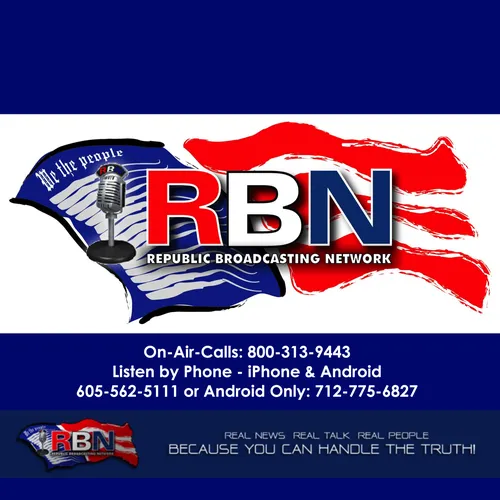Your Health In Mind with Michael Storm and Dr. Dean Lloyd, July 3, 2025
- Author
- Republic Broadcasting Network
- Published
- Thu 03 Jul 2025
- Episode Link
- https://www.republicbroadcastingarchives.org/your-health-in-mind-with-michael-storm-and-dr-dean-lloyd-july-3-2025/
Follow up on last week regarding Ginkgo Biloba and how herbs are not drugs.
Herbs to consider:
St. John’s Wort
St. John’s wort, a popular herbal supplement for mood disorders, can cause various side effects, which may range from common and mild to rare and serious. Common side effects: Gastrointestinal issues: Upset stomach, nausea, diarrhea. Neurological effects: Dizziness, drowsiness, headaches, insomnia, feeling anxious or agitated. Skin reactions: Increased sensitivity to sunlight (photosensitivity), especially with fair skin and/or high doses. Dry mouth Fatigue Sexual dysfunction: Lower sex drive or erectile dysfunction. Rare but serious side effects: Serotonin syndrome: Increased heart rate, tremors, sweating, agitation, confusion, high blood pressure, diarrhea, fever. Eye damage: Studies suggest a possible risk of cataracts or nerve damage. Allergic reaction: Hives, difficulty breathing, swelling of face, lips, tongue, or throat. Mental changes: Hallucinations, psychosis, mania in people with bipolar disorder.
Goldenseal is a plant with a long history of use, particularly its root, which contains alkaloids like berberine. Historically, Native Americans used it for various health conditions, and it is still used in folk medicine for similar purposes. However, it’s important to be aware of its potential side effects and interactions, and it’s always recommended to consult with a healthcare professional before using it. Potential Uses (mostly based on traditional or anecdotal evidence, and requiring more research): Antimicrobial properties: Goldenseal contains berberine, which may have effects against bacteria and fungi, and has been traditionally used to address infections like diarrhea and eye infections. Immune Support: Some studies suggest that goldenseal, especially its berberine content, may support immune function by helping regulate inflammation and maintaining a healthy balance of bacteria. Digestive Aid: Traditional uses include using goldenseal for stomach pain, indigestion, diarrhea, and other gastrointestinal issues. Oral Health: Goldenseal has been used as a mouthwash for sore gums and mouth, and research suggests it may help protect against dental plaque and gingivitis. Skin Care: Topical applications of goldenseal have been used for skin rashes, ulcers, and wound infections. Potential Side Effects: Digestive Issues: Nausea, vomiting, diarrhea, constipation. Excitability or nervousness. Uterine contractions: Avoid if pregnant or breastfeeding. Jaundice in newborns: Berberine can worsen jaundice and potentially lead to kernicterus. Increased bleeding risk: Use with caution if you have bleeding disorders. Interactions with medications: Goldenseal can interact with blood thinners, blood pressure medications, and certain liver enzyme-metabolized drugs. Warnings and Precautions: Avoid if pregnant or breastfeeding: Due to the risk of uterine contractions and harm to newborns. Not for infants and young children: Can cause brain damage from high bilirubin levels. Potential toxicity with long-term use: Animal studies suggest potential liver toxicity with long-term high-dose ingestion. Potential interactions with various medications: Consult with your healthcare provider before using goldenseal, especially if you are taking other medications. Possible cancer risk: Some animal studies have shown potential carcinogenic effects. Important Notes: Limited Scientific Evidence: Many of the claimed benefits of goldenseal are not yet supported by strong scientific evidence. Quality and Purity Concerns: Some commercially available goldenseal products have been found to contain other herbs or ingredients not listed on the label. Consult a Healthcare Professional: Always talk to your doctor or healthcare provider before taking goldenseal, especially if you have any medical conditions or are taking any other medications. Goldenseal: Usefulness and Safety | NCCIH Feb 15, 2025 — Background * Goldenseal is a plant native to the northeastern United States and southeastern Canada. It has a bright yellow rhizome (underground stem). Wild gol… favicon National Center for Complementary and Integrative Health (.gov) Goldenseal: Benefits, Dosage, Side Effects, and More – Healthline Jun 18, 2020 — Goldenseal: Benefits, Dosage, Side Effects, and More. … Goldenseal is an herbal remedy that some people use to treat colds, hay fever, digestive problems, and… favicon Healthline Goldenseal – PlantShoe Page 1 * Goldenseal is a plant that grows wild in parts of the United States but has become endangered by overharvesting. With natural supplies dwindling, golde… favicon PlantShoe Show all
While some herbs have medicinal properties and are used to treat or prevent ailments, they are generally not classified as drugs especially in the United States. The FDA considers herbal supplements as foods, not medicines, and thus they are not subject to the same rigorous testing, manufacturing, and labeling standards as drugs, according to Johns Hopkins Medicine.
Here’s a more detailed breakdown:
Herbs as Dietary Supplements:
- Herbal supplements are classified as dietary supplements, not medications.
- This means they are not required to undergo the same level of testing and regulation as drugs, says MedlinePlus.
- For example, herbal supplement labels are not allowed to claim that the herbs treat specific health conditions, according to Johns Hopkins Medicine.
- The FDA does not approve herbal medicines; they are considered complementary therapies, according to MedicalNewsToday.
Herbs and Drugs: Key Differences:
- Regulation:Drugs must undergo extensive clinical trials and meet stringent manufacturing standards, while herbal supplements do not, according to MedlinePlus.
- Standardization:Drugs are typically standardized to ensure consistent potency and composition, but this is not always the case with herbal supplements.
- Claims:Drug labels must clearly state what the medication is intended to treat, while herbal supplement labels cannot make such claims, according to Johns Hopkins Medicine.
- Potential Risks:While many herbs are considered safe, they can still have side effects, and some can interact with medications or exacerbate certain conditions.
Important Considerations:
Not Always Safer:While often perceived as natural and safe, herbal remedies are not inherently safer than conventional medications and can have risks, says the National Center for Complementary and Integrative Health.
Quality Matters:The quality and consistency of herbal supplements can vary significantly, and some products may contain fillers or contaminants.
Consult with Professionals:It’s crucial to consult with a healthcare professional before using any herbal supplement, especially if you have existing health conditions or are taking other medications.
